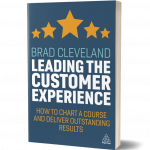The late Steve Jobs once famously stated, “It doesn’t make sense to hire smart people and tell them what to do; we hire smart people so they can tell us what to do.” No one in your organization understands processes, products and customers more than your employees. Those closest to the work know it best.
Annual employee surveys and exit interviews are common sources of employee feedback. However, no matter how good the questions, it’s tough to truly understand the hearts and minds of employees with a once-a-year survey. Let’s look at some other, more frequent, sources of employee feedback.
Pulse surveys – By adopting many of the same survey best practices used with customers (timely, relevant, correlated to a specific event), “pulse surveys” were born. An employee pulse survey is a short set of questions provided on a recurring basis (as often as every one or two weeks). Today’s technology options make them easy to administer, and they provide timely insight on the employee experience.
Coaching conversations – A performance management process that enables communication and feedback between a manager and an employee is also essential. And it’s not just the manager that should be providing coaching in these conversations. The employee also should be given the opportunity to provide insight into how their experience could be improved.
Organic conversations – Organic conversations show you care—and they are essential to understanding the individuals who are part of your team. What work engages them? Where do they feel they can make the best contribution? What barriers are getting in the way? Sometimes the best way to listen and learn is to just be present. There’s no substitute for unstructured and unplanned organic conversations. The most effective leaders have a good sense, an intuition, of when they need to be available for these opportunities.
Stay interviews – Another tool to consider for deepening employee engagement is the “stay interview.” Dick Finnegan, a retention expert who’s authored many books and studies on the topic, defines a stay interview as “a structured discussion a leader conducts with each individual employee to learn the specific actions she must take to strengthen that employee’s engagement and retention with the organization.” Stay interviews are, essentially, just focused conversations with a specific purpose and defined cadence.
I’ve found these methods of gathering employee feedback to be informative and inspiring. And they underscore a key principle: retention is an important leadership responsibility.
Excerpt from Leading the Customer Experience: How to Chart a Course and Deliver Outstanding Results by Brad Cleveland.
Notes:
Steve Jobs’ quotation is from Schwantes, M (2017) Steve Jobs once gave some brilliant management advice on hiring top people. Here it is in 2 sentences, Inc., 17 October, www.inc.com/ marcel-schwantes/this-classic-quote-from-steve-jobs-about-hiring-employees- describes-what-great-leadership-looks-like.html (archived at https://perma. cc/2VAC-F8A7)
Dick Finnegan’s quotation is from The Finnegan Institute (nd) Stay Interview Certification Courses and Learning Modules, www.finneganinstitute.com/faq/#what-is-a-stay-interview (archived at https://perma.cc/GZG8-WVR8)
